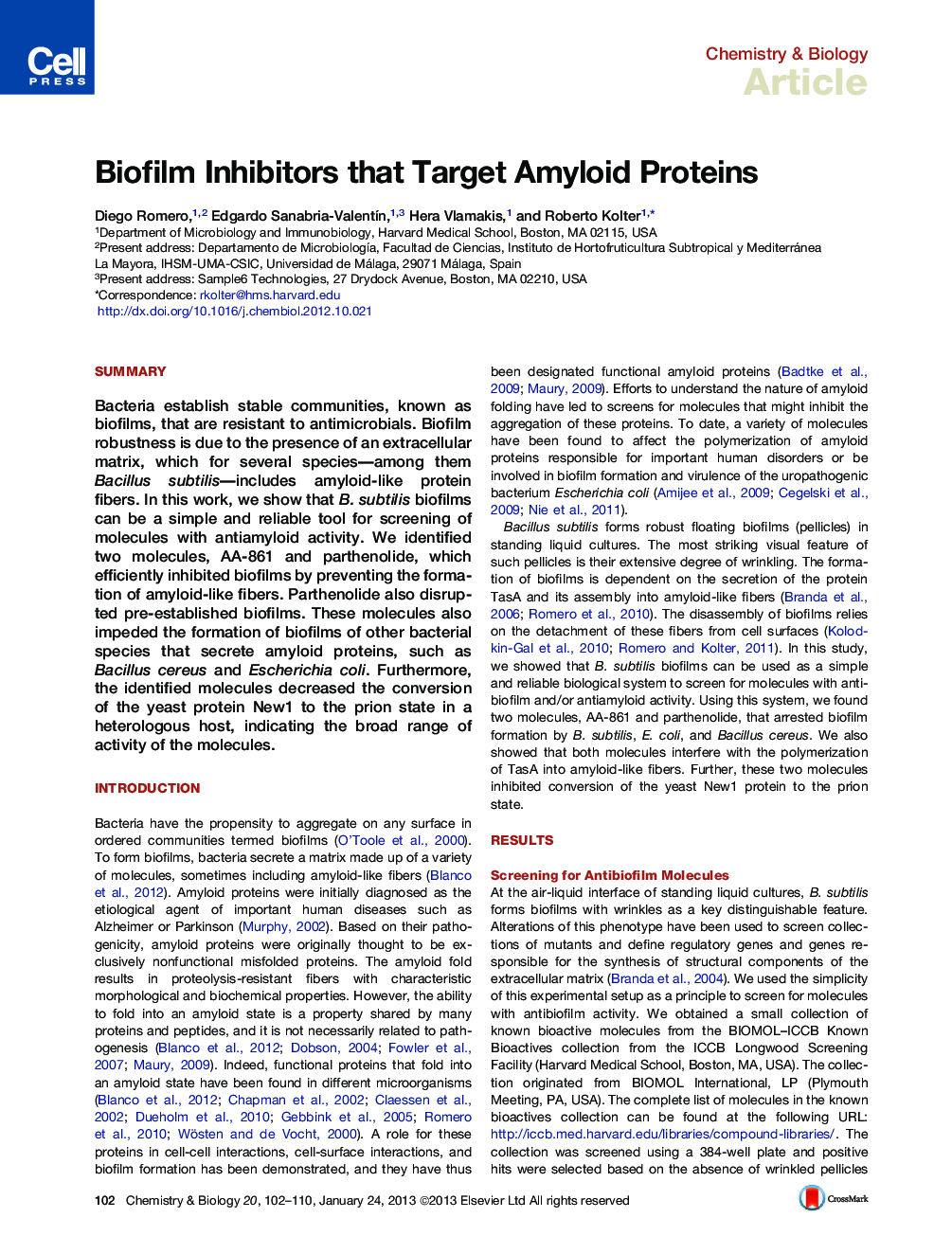| کد مقاله | کد نشریه | سال انتشار | مقاله انگلیسی | نسخه تمام متن |
|---|---|---|---|---|
| 1391229 | 983221 | 2013 | 9 صفحه PDF | دانلود رایگان |

SummaryBacteria establish stable communities, known as biofilms, that are resistant to antimicrobials. Biofilm robustness is due to the presence of an extracellular matrix, which for several species—among them Bacillus subtilis—includes amyloid-like protein fibers. In this work, we show that B. subtilis biofilms can be a simple and reliable tool for screening of molecules with antiamyloid activity. We identified two molecules, AA-861 and parthenolide, which efficiently inhibited biofilms by preventing the formation of amyloid-like fibers. Parthenolide also disrupted pre-established biofilms. These molecules also impeded the formation of biofilms of other bacterial species that secrete amyloid proteins, such as Bacillus cereus and Escherichia coli. Furthermore, the identified molecules decreased the conversion of the yeast protein New1 to the prion state in a heterologous host, indicating the broad range of activity of the molecules.
► B. subtilis biofilm as a tool for screening of antibiofilm and antiamyloid molecules
► AA-861 and parthenolide are antibiofilm agents
► Amyloid protein fibers are the main targets of AA-861 and parthenolide
► Inhibition of amyloid fiber formation as a main mode of action
Journal: - Volume 20, Issue 1, 24 January 2013, Pages 102–110